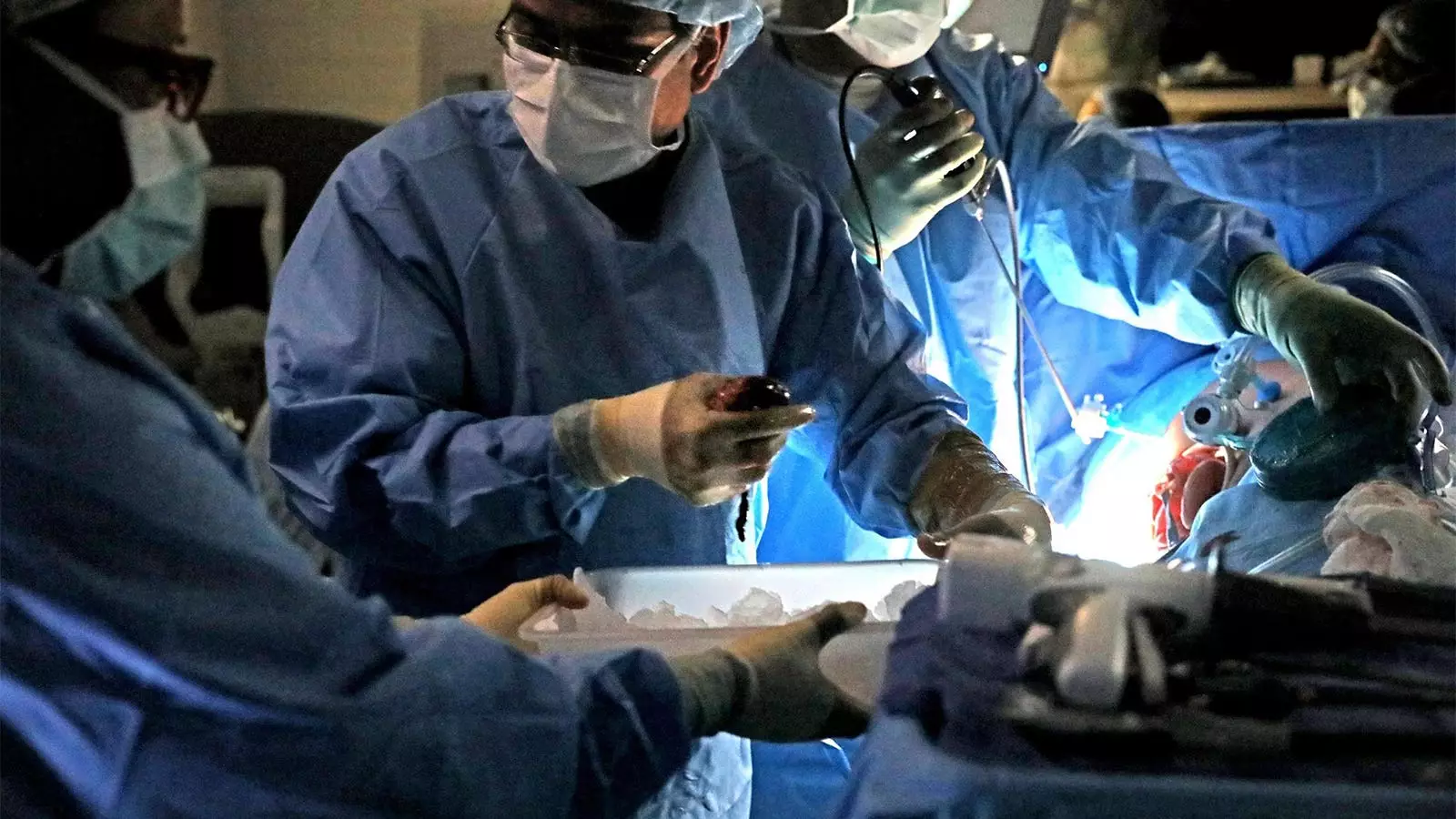The ongoing crisis of organ shortages has reached alarming levels, with over 100,000 individuals languishing on transplant waiting lists in the United States. The sobering statistic that 17 people lose their lives each day due to the unavailability of organs highlights the urgency of the situation. Among the many stories of strength and desperation, that of Simon and his best friend Andre stands out. After a long period of separation due to work obligations, Simon was shocked to see that Andre, who had recently been diagnosed with kidney disease, appeared frail and worn out. As Andre awaited a lifesaving kidney transplant through the national list—a process that could take years—Simon instinctively offered to donate one of his own kidneys. An altruistic gesture quickly turned complicated when Simon faced a lack of support from his employer, culminating in him taking out loans to afford his own family’s expenses during the donation and recovery period. This experience is not merely personal; it serves as a microcosm of the systemic issues surrounding living organ donation.
The Barriers Confronting Living Organ Donors
Living organ donation, while fundamentally a selfless act, is marred by numerous barriers that deter potential donors like Simon. In the realm of transplant medicine, living organ donors play a crucial role in alleviating some of the pressure caused by organ shortages. In 2023, more than 6,900 individuals opted to become living organ donors. By donating a kidney or a part of the liver while alive, these donors significantly improve the quality of life for recipients experiencing severe organ failures. However, the process of living donation is fraught with challenges, including lack of employer support and complications with health and life insurance.
Donors frequently encounter higher premiums, denial of coverage, or a lack of financial security in health insurance and life insurance markets. Furthermore, the necessity for travel and unpaid leave compounds the financial burden, making it untenable for many eager to help their loved ones. This disparity in the treatment of living donors effectively serves as a disincentive to acts of generosity, and it further exacerbates the organ shortage crisis by limiting the number of people willing to donate an organ.
Legislative Reforms: A Path Towards Change
To ameliorate the situation, a series of legislative reforms can play a pivotal role. Existing laws, such as the Affordable Care Act and the Family and Medical Leave Act (FMLA), provide some level of protection for living donors; however, their effectiveness falls short on several fronts. The ACA prohibits discrimination based on pre-existing conditions but does not consistently protect living donors from obtaining reasonable life and health insurance. Similarly, while the FMLA allows some employees to take unpaid leave for organ donation surgery, this protection is not uniformly applied across all states or employers.
Recent legislative efforts, such as the bipartisan Living Donor Protection Act introduced in 2021, aim to reinforce support for living organ donors by preventing insurance discrimination based on donor status and affirming that organ donation qualifies as a serious health condition. Such measures would provide much-needed reassurances to individuals considering donation.
Another significant proposal, the Honor Our Living Donors (HOLD) Act, seeks to reframe the financial aid structure for organ donation, ensuring that aid eligibility is based on the donor’s income rather than the recipient’s. Additionally, the Living Organ Donor Tax Credit Act offers a tangible incentive by proposing a one-time refundable tax credit for expenses incurred in the donation process. Despite the potential of these legislative moves to alleviate the burdens faced by living donors, they continue to linger in legislative limbo, often overshadowed by a polarized political climate and competing priorities.
The story of Simon and Andre underscores a pressing societal dilemma: while the willingness to donate organs—particularly from living donors—exists, the structural impediments are stifling this altruism. For the sake of those on the waiting list and their families, it is imperative that we advocate for comprehensive reforms that will dismantle the existing roadblocks.
By prioritizing legislation that will protect living donors, we can foster a more supportive environment that encourages organ donation. It is not merely about addressing organ shortages; it is about recognizing and supporting the courage of individuals like Simon who wish to make a difference. Every organ donation can change a life; therefore, it is our collective responsibility to create a framework that empowers potential donors, ensuring their incredible gifts are realized without the added burden of financial insecurity. The call for change is urgent, and it is one we can no longer afford to ignore.


Leave a Reply